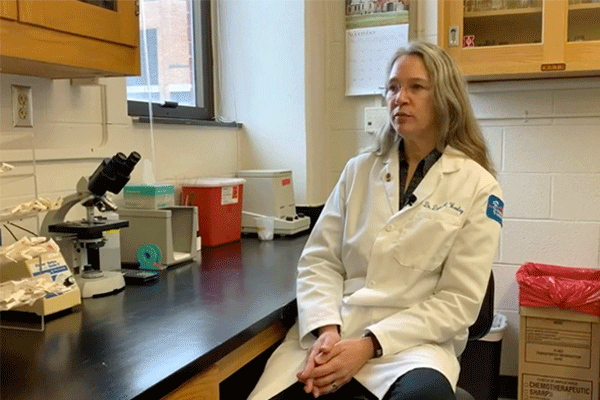
Excerpt from the Dayton Daily News
The Centers for Disease Control and Prevention (CDC) recently shortened the quarantine guidelines despite the Omicron variant spreading rapidly. A Wright State University (WSU) professor shares the science behind the change.
The CDC changed the COVID-19 quarantine guidelines from 10 days to five days past a positive test. This is the second change to the quarantine length, which was originally 14 days at the start of the pandemic in 2020.
The shortened quarantine guideline came as a shock to some, as the Omicron variant spreads across the country at a rapid pace. However, Dr. Dawn Wooley, Professor of Neuroscience Cell Biology & Physiology at WSU, says that there is a scientific reason behind the change.
According to Wooley, the average incubation period for COVID, or the time it takes from the virus entering someone’s body to when they show symptoms, is six days. When a person tests positive, the incubation period has already occurred.
“See, that is taking into consideration that if you’re already positive then it has already incubated. So that makes a lot of sense in that regard,” Wooley said.
Wooley also said that at five days past a positive test, which is past the incubation period, someone is less likely to be contagious even if their symptoms still persist.
“Interestingly, people are more contagious before they have symptoms,” Wooley said.

